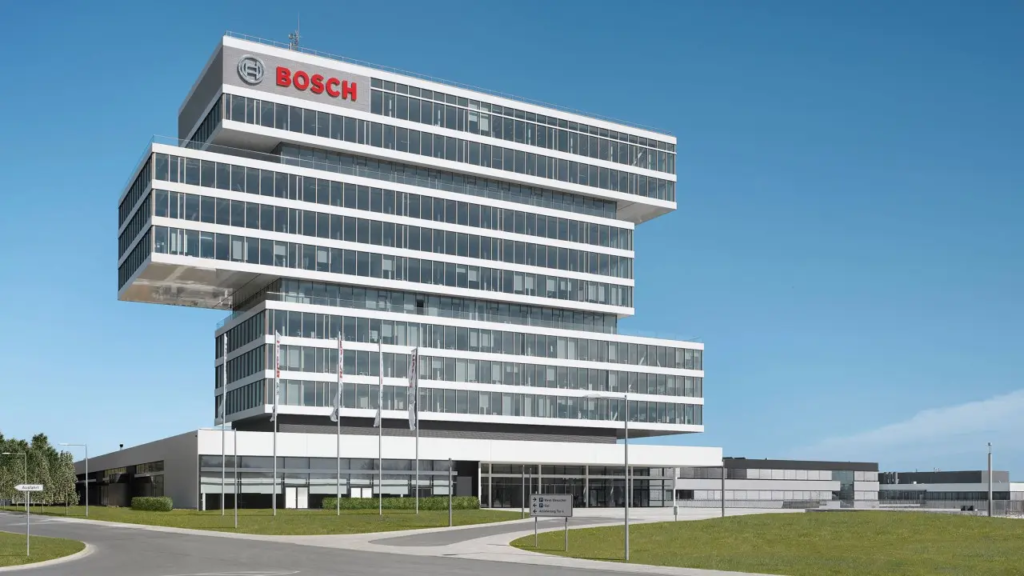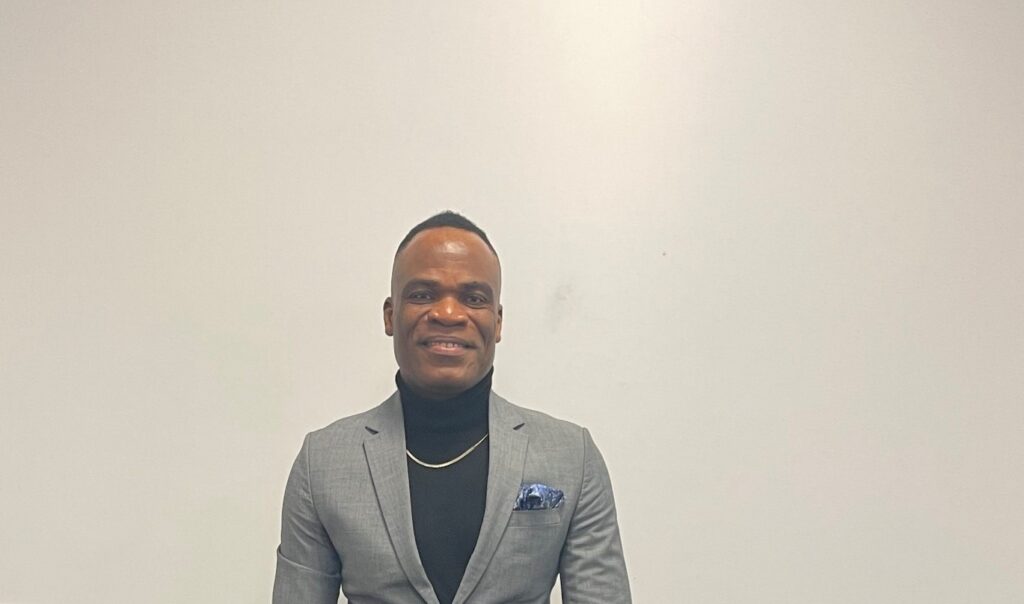FSB students speak with Bosch about making sustainability intentional

Photo: FSB
 By Kunal Chan Mehta Article Date: 19th April 2022
By Kunal Chan Mehta Article Date: 19th April 2022
The challenge of climate change calls for a courageous response and clear action from both organisations and individuals. Yet human activities and lifestyle factors are increasing climate change faster than ever. Sustainability has never been more significant.
To discover more about sustainability on a global scale, FSB students were offered an extraordinary opportunity to ask leaders at world-leading tech giant Bosch about conducting sustainability practices in an economical, ecological and socially responsible manner.
Commenting on the student-led discussion, Mr Mohammed Zaidi, FSB’s CEO, said: ‘Yet again FSB students are commended for being at the forefront of bespoke industry interviews and contributing to the sustainability body-of-knowledge.’

Tihomira Pencheva (FSB)
Tihomira Pencheva, Business Management student at FSB Croydon:
- How is Bosch being intentional about sustainability?
“The Bosch Group, with its more than 400 locations worldwide, has not left a carbon footprint since February 2020, making it the first global manufacturing company in the industrial sector to make its operations carbon neutral. But we have to do more: we are working to minimise the proportion of carbon offsets we need to stay carbon neutral.”
- How is Bosch playing a pioneering role in climate action?
“The Bosch Group, with its more than 400 locations worldwide, has not left a carbon footprint since February 2020, making it the first global manufacturing company in the industrial sector to make its operations carbon neutral. But we have to do more: we are working to minimise the proportion of carbon offsets we need to stay carbon neutral.”
- Customers clearly prefer working with sustainable companies. How are your supply chains acknowledging this?
“We have clearly seen that customers, partners, suppliers and investors increasingly prefer to work with sustainable companies. We are now focusing on Scope 3 carbon neutrality, which means the entire supply chain and the way customers use our products need to also be carbon neutral. Climate protection is, therefore, a joint task and the cooperation of our suppliers and partners is essential to achieve this goal.”
Darius Zamfir, Business Management student at FSB Birmingham:
- In simple terms, sustainability is about the world we leave behind for our children and grandchildren. What does sustainability mean for Bosch?
“For Bosch, it means playing a leading role in sustainability management by acting in an economically, environmentally, and socially responsible manner. We want to improve people’s quality of life and safeguard the livelihoods of present and future generations.”
- What business value have you seen from your sustainability efforts?
“We see energy efficiency and the reduction of emissions as an opportunity to differentiate ourselves from the competition – we want to persuade the companies we partner with of the truth in this logic. Our new Bosch Climate Solutions business is a good example of this. It shares our experience of reaching carbon neutrality with other companies, thereby multiplying our impact further afield. This is opening up a new growth area for Bosch. The technology we develop also adds significant business value. For example, our work in electromobility and in hydrogen-mobility will enable other businesses to reduce their carbon emissions. In some cases, they’ll use our technology to make huge reductions in carbon emissions.”

Mihaela Taran (FSB)
Mihaela Taran, Health and Social Care Management student at FSB Croydon:
- Is sustainability making us believe that using ‘fewer’ resources is better – thought it would be better to waste less – rather than use less?
“Reducing waste is a vital part of increasing sustainability. Whether it’s in packaging or energy consumption, only using what you truly need is important. But bigger gains can be made through re-engineering products and services so that they use fewer resources. If you look at the efficiency of combustion engines, they became much more efficient as technological breakthroughs were made in the 1990s and 2000s.”
- Can you tell me how is Worcester Bosch saving 70 million litres of water each year via a water recycling system?
“This system was put in place in 2015 and it enables us to re-use water at our Worcester Bosch development facility. We were previously using 110 million litres of water from the mains to test our boilers and to develop new technology, such as the hydrogen-ready boiler. By re-using the water we’ve reduced waste by 71 million litres, which also saves 12 tonnes of carbon and reduces the need for the local drainage system to take that volume.”

George Washington (FSB)
George Washington, Student Union President of Croydon and Business Management student at FSB Croydon:
- Does Bosch have its own sustainability goals?
“We have a range of sustainability goals. We met the key goals of being climate neutral at scopes 1 and 2 in 2020 and we’re now focused on scope 3. This means reducing the emissions of our suppliers and our customers when they’re using our products and is a much larger challenge than focusing on the emissions that we emit ourselves (scopes 1 and 2). In addition, we have clear targets in the areas of health, globalisation, energy use, water use and urbanisation. These are all part of our sustainability 2025 ambition.”
- Is Bosch creating its own energy at its sites?
“Yes. In 2020 we generated 69 GWh of power from renewable sources in-house at our company sites. Our goal is to increase this to 400 GWh by 2030. In addition, since 2019 we have initiated more than 2000 energy-efficiency projects worldwide. We have saved 0.38 TWh of energy. It’s a challenge for many companies to make investments and the size of the company is important in enabling them to commit to these sort of projects but through our Bosch Climate Solutions business we are helping other companies to take on similar projects.”
István Harmos, Health student from FSB Birmingham:
- The supply chain crisis is colossal. How will you aim to reduce supply chain emissions?
“We’ve begun recording the emissions of suppliers and we want to measure their progress in reducing emissions. We expect our suppliers to conform to the ISO 4001 environmental management standard and in future, CO2 emissions will be taken into account when awarding contracts. In the field of logistics, we are focusing on avoiding airfreight and a pilot project resulted in a 10% reduction in emissions in a year by moving from air to sea. We’re researching how this can be rolled out to other parts of the business.”
Krisztina Nagy, Health Student at FSB Birmingham:
- Bosch has set itself clear sustainability targets with its “New Dimensions — Sustainability 2025” vision. But, for me, saying ‘future’ may make people believe there’s lots of time to act – when there clearly isn’t. We need to act now. Do you share my concern for urgency? If so, how?
“Sustainability is a topic Bosch has taken seriously for a long time, and our founder, Robert Bosch, was ahead of his time in his understanding of the need to protect the environment. Bosch introduced its first Environmental Report in 1998 and has produced an annual report since 2011. Bosch has 400 locations around the world and since February 2020 we have not left a carbon footprint, making us the first global manufacturing company in the industrial sector to make its operations carbon neutral. We know there is more to do and we have set an ambitious goal of reducing our scope 3 emissions by 15 percent by 2030. Scope 3 involves our suppliers and our customers reducing their own carbon footprints and so to reach this sort of goal is very challenging, but we know that with creativity, perseverance and determination we can work together to accomplish it.”
Contact kunal.mehta@fairfield.ac for any questions or comments on this article.